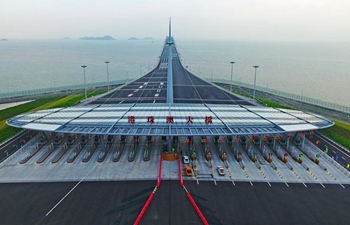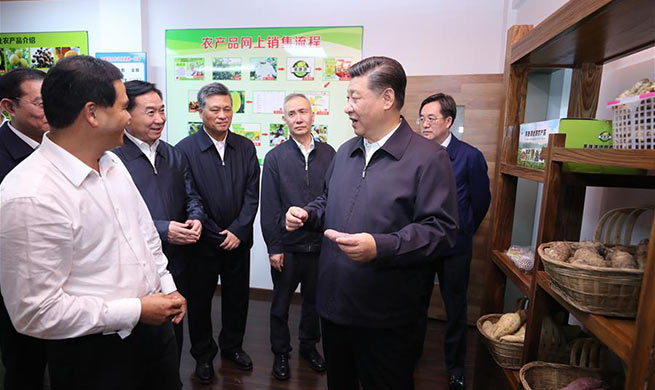NAIROBI, Oct. 24 (Xinhua) -- The International Monetary Fund (IMF) on Tuesday evening called on Kenya to take considerable steps to reduce the fiscal deficit to help address the country's rising public debt.
The IMF however lauded Kenya on its ambitious plans for fiscal adjustment in 2017/18 and 2018/19 and noted that the size of the adjustment would help put the public debt ratio on a downward path.
"Public debt has risen as revenue shortfalls have not been matched by spending cuts," IMF's executive board said in a statement issued after the conclusion of the 2018 Article IV consultation and established performance criteria for the second review under the Stand-By Arrangement with Kenya.
The IMF and the Kenyan authorities had agreed that a reduction in the fiscal deficit to 7.2 percent of GDP in 2017/18 and further to 5.7 percent of GDP in 2018/19 from 8.8 percent in 2016/17 would be appropriate.
The lender said adjustment efforts should focus on both expenditures and revenues to preserve space for planned growth enhancing public investment and key social programs, including the Big Four agenda of food security, affordable housing, manufacturing and universal healthcare.
The executive directors lauded Kenyan authorities for maintaining macroeconomic stability and sustained economic growth in recent years, together with gains in financial inclusion and poverty reduction.
"While domestic shocks reduced the pace of expansion in 2017, the economy is recovering and medium-term growth prospects remain favorable," the lender said.
The IMF directors encouraged further repeal or significant modification of interest rate controls and measures to strengthen the financial sector and business environment to safeguard the gains achieved.
"They emphasized that any modification should include the removal of the link between the lending rate cap and the central bank policy rate, the removal of a floor on deposit rates, and an increase of the lending cap to a level that protects consumers from predatory practices," said IMF.
"The six month extension of the Stand By Arrangement will give the authorities more time to undertake these critical reforms," the IMF said.
Kenya had received approval to access the facility in March 2016 to provide a policy anchor for continued macroeconomic and institutional reform, and help mitigate the impact of potential exogenous shocks to the economy if they were to materialize.
The board also welcomed the government's progress in strengthening the banking supervision framework, and encouraged continued efforts in this area.
The directors said Kenya's medium-term growth prospects are favorable, supported by infrastructure investment and an improving business environment.
However, they said continued strong growth and macroeconomic stability hinge on the implementation of reforms.
















